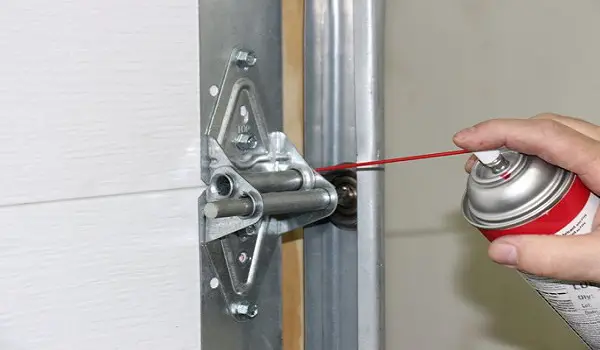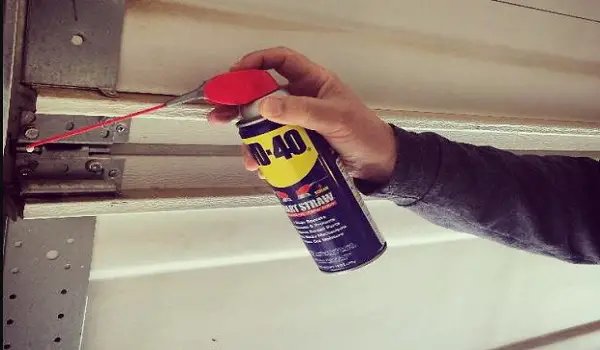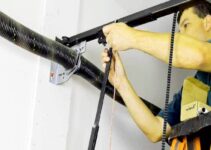Is your garage door making annoying squeaking sounds every time you open or close it?
Don’t worry, with a little bit of maintenance and lubrication, you can easily get rid of those squeaks and extend the lifespan of garage door.
In this article, we will guide you through the process of lubricate garage door to ensure smooth and quiet operation. So let’s get started!
1. Gathering the Required Supplies

Before you begin the lubrication process, gather the following supplies:
- White lithium-based lubricant (specifically designed for garage doors)
- Gloves
- Old rags or socks
- Safety glasses
- Socket wrench or adjustable wrench
- Ladder or step stool (ensure it reaches the tallest part of your track)
Having these supplies ready will make the lubrication process easier and more efficient.
2. Checking and Tightening the Hardware
Start by inspecting the hardware of your garage door. Check for any loose screws, bolts, or nuts and tighten them as necessary. Ensure that all hardware is snug but avoid overtightening, as it may affect the door’s operation.
3. Lubricating the Hinge Pins and Rollers
Apply the white lithium-based lubricant between the hinge pins and the sleeves they roll inside. Wiggle the wheels to distribute the lubricant evenly.
Also, lubricate the area near the wheels and bearings, if applicable. Generously apply the lubricant and wipe off any excess to prevent dripping.
4. Lubricating the Hinges
Similar to the hinge pins and rollers, lubricate the hinges generously. Ensure that the lubricant reaches all moving parts of the hinges. Wipe off any excess lubricant to avoid accumulation.
5. Lubricating the Trolley Arm
Lubricate both ends of the arm that connects the door to the trolley. Apply lubricant to the pins connecting the arm at the top of the door and the mechanism that connects it to the trolley. Wipe off any excess lubricant.
6. Lubricating Torsion Springs (If Applicable)
If your garage door has exposed torsion springs, spray the entire outside of the springs with lubricant. Torsion springs rub together during door operation, and lubrication helps reduce friction. If your springs are enclosed, lubricate the bearings at the ends as much as possible.
7. Lubricating the Track
When lubricating the track, focus on the top face where the trolley rides. Ensure the lubricant doesn’t come into contact with belts or other non-lubrication areas.
Lift the belt (if applicable) and spray the lubricant on the top face of the track. Wipe the track with a rag or sock to remove any debris, dust, or old grease.
8. Testing and Fine-Tuning
Once you have completed the lubrication process, manually open and close the garage door several times to distribute the lubricant.
Reconnect the door to the trolley and operate it with the opener. Listen for any remaining squeaks or noises and apply additional lubrication if needed. Fine-tune the lubrication until the door operates smoothly and quietly.
9. Additional Tips for Maintenance

- Clean the tracks and remove any debris regularly to prevent buildup.
- Avoid using WD-40 or other degreasers as lubricants for garage door.
- Use a nylon brush to remove stubborn dirt or grime from the tracks.
- Inspect the garage door’s components regularly and address any issues promptly.
- Consult a professional if you encounter complex problems or if your garage door requires extensive repairs.
Conclusion
Lubricating your garage door is a simple yet essential maintenance task that can significantly improve its performance and lifespan.
By following the steps outlined in this guide, you can eliminate squeaks, reduce friction, and ensure smooth operation.
Regular lubrication will help you avoid costly repairs and keep your garage door functioning optimally for years to come.


